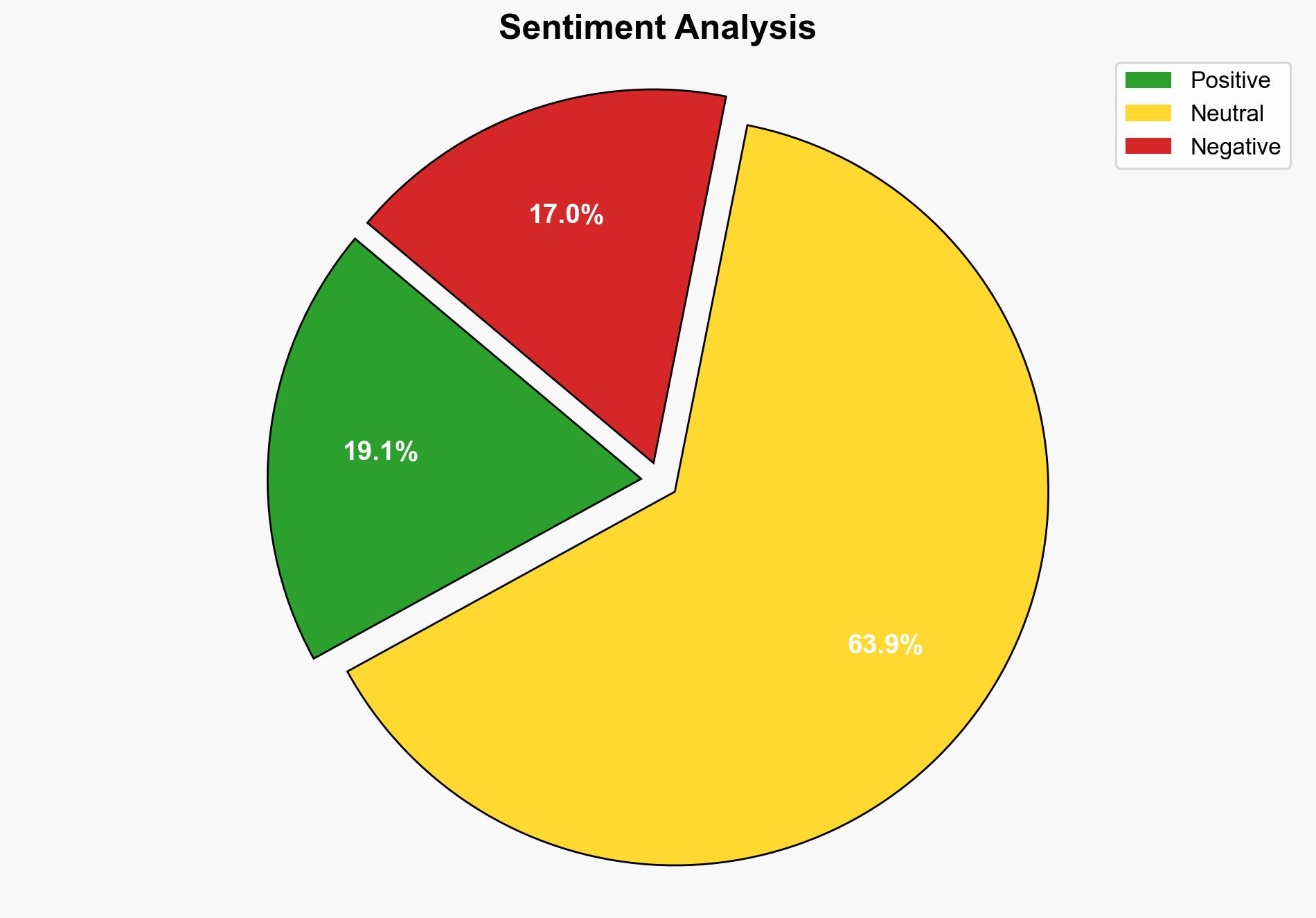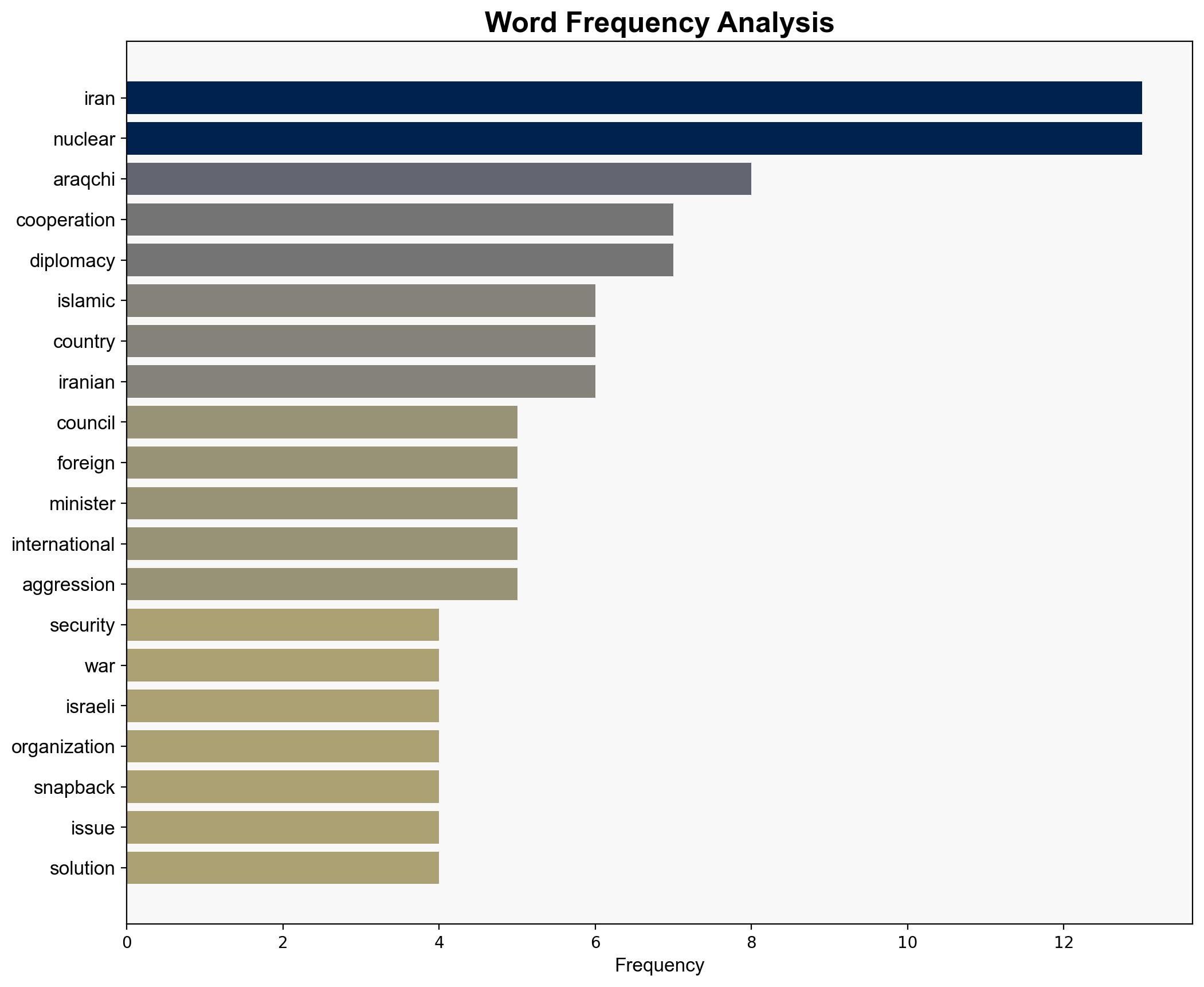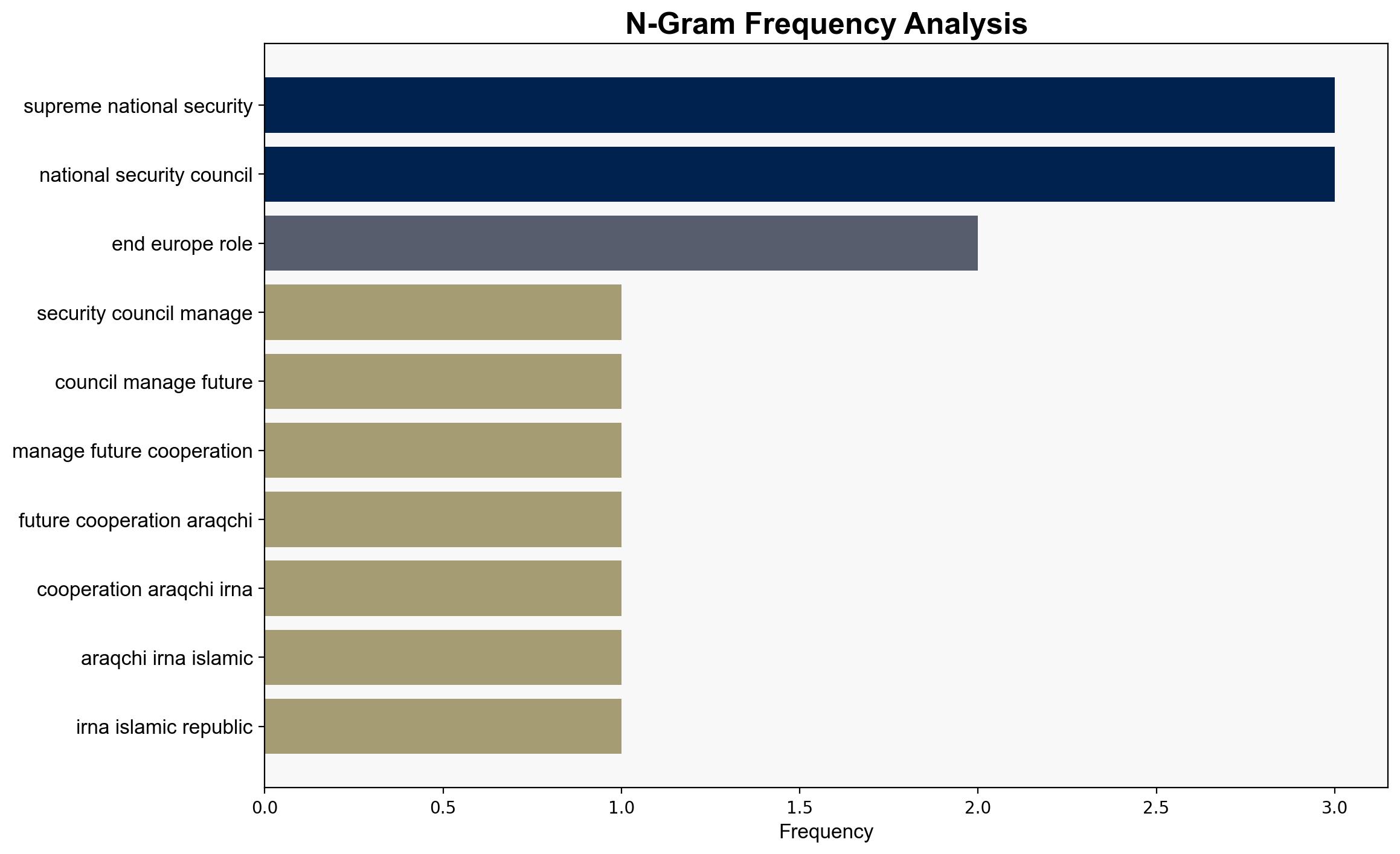Supreme National Security Council to manage future cooperation with IAEA Araqchi – Globalsecurity.org
Published on: 2025-07-13
Intelligence Report: Supreme National Security Council to Manage Future Cooperation with IAEA Araqchi – Globalsecurity.org
1. BLUF (Bottom Line Up Front)
Iran’s Supreme National Security Council is set to oversee future cooperation with the International Atomic Energy Agency (IAEA), as stated by Abbas Araqchi. This move aligns with Iran’s strategic shift following recent geopolitical tensions, particularly with Israel and the United States. The council’s management aims to ensure Iran’s nuclear activities remain compliant with international norms while safeguarding national interests. Key recommendations include monitoring Iran’s diplomatic engagements and preparing for potential shifts in regional alliances.
2. Detailed Analysis
The following structured analytic techniques have been applied to ensure methodological consistency:
Cognitive Bias Stress Test
Potential biases regarding Iran’s nuclear intentions have been challenged to ensure a balanced assessment. The analysis considers both Iran’s stated peaceful objectives and external perceptions of its nuclear program.
Bayesian Scenario Modeling
Probabilistic forecasting suggests a moderate likelihood of escalated tensions if diplomatic efforts falter. The scenario modeling indicates a 60% probability of continued diplomatic engagement, with a 30% chance of increased sanctions or military posturing.
Network Influence Mapping
Mapping reveals significant influence exerted by Iran’s Supreme National Security Council over nuclear policy, with strategic alliances involving Russia and China potentially impacting future negotiations.
3. Implications and Strategic Risks
The centralization of nuclear policy under the Supreme National Security Council could lead to more cohesive but potentially rigid diplomatic strategies. Emerging threats include increased cyber espionage targeting Iran’s nuclear infrastructure and potential military escalations. The risk of miscalculation by Western powers or regional actors could destabilize the region further.
4. Recommendations and Outlook
- Enhance intelligence-sharing mechanisms with allies to monitor Iran’s nuclear developments closely.
- Encourage diplomatic channels to remain open, emphasizing negotiation over confrontation.
- Scenario Projections:
- Best Case: Successful diplomatic negotiations lead to a new agreement, stabilizing regional tensions.
- Worst Case: Breakdown in talks results in renewed sanctions and potential military confrontations.
- Most Likely: Continued diplomatic engagement with intermittent tensions and sanctions.
5. Key Individuals and Entities
Abbas Araqchi, Supreme National Security Council, International Atomic Energy Agency (IAEA), Israel, United States, Russia, China.
6. Thematic Tags
national security threats, nuclear diplomacy, regional stability, geopolitical strategy





